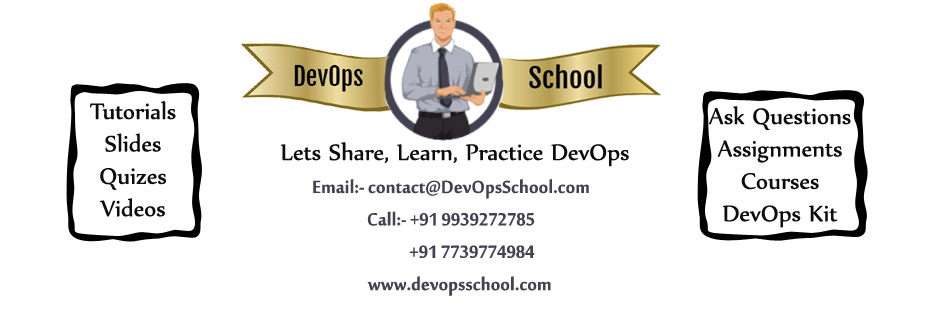 |
| Pic courtesy- scmGalaxy |
But what is the reason that every organisations wants to hire DevOps professionals.
Let's understand it in few lines.
DevOps is a set of practices that emphasize the collaboration and communication of both software developers and information technology (IT) professionals while automating the process of software delivery and infrastructure changes. It aims at establishing a culture and environment where building, testing, and releasing software can happen rapidly, frequently, and more reliably.
DevOps Adoption Benefits
- Technical benefits: Continuous software delivery
- Technical benefits: Less complex problems to fix
- Technical benefits: Faster resolution of problems
- Business benefits: Faster delivery of features
- Business benefits: More stable operating environments
- Business benefits: More time available to add value (rather than fix/maintain)
Now you can imagine how much it's important for organizations to adopt and implement DevOps culture in their work environment. But, to find a Good DevOps candidate is really a tough task for organisations. This is the time when you can grow you career as a DevOps engineer and make most out of it.
Now, the question here is how to make yourself ready for this culture?
Here is the answer, You can get yourself trained and groom for DevOps culture by enrolling scmGalaxy's especially designed DevOps courses.
Now, you will say why I should go with scmGalaxy? I would just say just watch this video you will get your answer.
Here you can see Agenda of the scmGalaxy's DevOps training.
Agenda of the training: Tools and Technologies
DevOps Concept, Foundation, Culture, Best Practices and Learning
- Problem That DevOps Solves
- Implement DevOps - Organization & Culture
- Continous Integration and Delivery Process
- Explore the DevOps background, approach, and best practices
- Integrate test automation with DevOps
- Implement continuous testing
- Discover the major steps required to successfully implement delivery pipelines
- DevOps Transition to a Project
Operating Systems
- Windows
- Linux (CentOs & Ubantu)
Version Control Management Tools Using
- Git
Build & Life-cycle Management Tools Using
- Maven
- MSBUILD
- Gradle
World of Application Packaging Tools with
- Nuget
- YUM
- APT
Virtualization and Container with
- Docker
- Vagrant
Static Code Analysis using
- SonarQube
Test Coverage using
- Jacoco
- Cobertura
Incident and Task Management System
- Jira
Configuration Management, Automation & Deployment Tools Using
- Chef
- Puppet
Continuous Integration & Delivery Using
- Jenkins
Understanding the Cloud Infrastructure with
- Amazon AWS EC2
Server Monitoring Tools with
- Nagios
Programming and Scripting with
- Bash Scripting
- Ruby Fundamental
Here you can find General questions answers which may raise in your mind
For more info you can contact us
Email - info@scmGalaxy.com
Phone - +91 8105843520 | 7004835930
 |
 |
 |
|---|
Wikipedia
scmGalaxy





